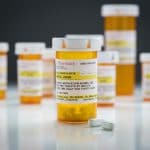Stimulant drugs (also called “uppers”) are substances that boost your energy, alertness, and concentration. They work by speeding up your central nervous system and increasing the activity of neurotransmitters (brain chemicals) called dopamine and norepinephrine.
Some people abuse various types of stimulant drugs by using them in a manner not prescribed by a doctor. Stimulant abuse poses serious health risks, including addiction. Here is a list of stimulant drugs that are most commonly abused.
Cocaine
Cocaine (also called coke) is a white powder made from the coca plant. Some people snort or inject the powder. Other people cook it into small rocks that can be smoked. These rocks are known as crack cocaine.
Along with making you feel energized and alert, cocaine can also cause euphoria (intense joy).
However, the euphoria is often followed by unpleasant feelings, including:
- anxiety
- paranoia
- irritability
- aggression
Cocaine can also raise your heart rate, body temperature, and blood pressure.
Addiction & Health Problems
In addition, it’s highly addictive. Regular cocaine use can damage your heart and increase your risk of heart attack and stroke.
It also makes you more likely to contract infectious diseases such as HIV/AIDs and hepatitis. That’s because many people who use cocaine share needles for injecting the drug or have unprotected sex while high.
Methamphetamine
Methamphetamine (also called meth) is a powder. It can be snorted, injected, or eaten. It can also be cooked into smokable rocks called crystal meth.
Like cocaine, meth often causes euphoria followed by anxiety, paranoia, and aggression.
Other side effects may include:
- high blood pressure
- faster breathing
- fast or irregular heart rate
- dangerously high body temperature
- nausea
- loss of appetite
Meth is extremely addictive.
People who live with meth addiction face an increased risk of various health problems, including:
- severe dental problems
- premature osteoporosis
- damage to the brain, heart, liver, kidney, and lungs
- heart attack and stroke
Risk Of Psychosis
Meth can also cause psychosis.
Psychosis is a temporary loss of connection with reality that usually causes paranoia, delusions, and hallucinations. Many people who use meth hallucinate that bugs are crawling on or under their skin. They may then pick at their skin excessively, leaving sores.
MDMA
MDMA (also called ecstasy or molly) comes in multiple forms, including a tablet, capsule, liquid, and powder. It first became popular at raves (all-night dance parties).
Along with stimulant effects like increased energy, MDMA also has hallucinogenic effects, including hallucinations and an altered sense of time. It can also enhance your empathy and sense of well-being.
Adverse Effects
MDMA can also have adverse effects, including:
- nausea
- headache
- chills
- sweating
- depersonalization (feeling detached from yourself)
- dangerously high body temperature
At very high doses, the drug may also cause seizures, loss of consciousness, organ failure, and death.
Researchers have not yet determined whether MDMA is addictive. However, some people who regularly use the drug and then stop have reported withdrawal symptoms like fatigue, trouble concentrating, and depression.
Synthetic Cathinones
Synthetic cathinones (also called bath salts) are human-made substances that chemically resemble cathinone, a natural stimulant that comes from the khat plant.
In general, synthetic cathinones resemble a white or brown powder. They’re usually snorted, injected, smoked, or swallowed.
Powerful Effects
Synthetic cathinones are extremely powerful.
Their most common effects include:
- increased heart rate
- high blood pressure
- chest pain
- euphoria
- anxiety
- panic attacks
- paranoia
- hallucinations
- aggression
- violent behavior
In some cases, the drugs can even cause death, especially when snorted or injected. Also, like other stimulants, they can be addictive.
Prescription Stimulants
Prescription stimulants are used to treat attention-deficit hyperactivity disorder (ADHD) and narcolepsy (excessive sleepiness).
The most common prescription stimulants include:
- amphetamine (brand name Adderall)
- atomoxetine (Strattera)
- dexmethylphenidate (Focalin)
- lisdexamfetamine (Vyvanse)
- methylphenidate (Concerta or Ritalin)
When used as prescribed, prescription stimulants are generally safe.
Prescription Stimulant Abuse
However, some people abuse prescription drugs by using them in a manner not prescribed.
For instance, they might:
- use them more often than prescribed
- use higher doses than prescribed
- mix them with other drugs
- crush the pills and snorting them
- use them without a prescription
Prescription stimulant abuse may occur because of their performancing-enhancing qualities. For example, some college students abuse drugs so they can stay awake, focus, and boost their academic performance. That’s why prescription stimulants are sometimes called “study drugs.”
Prescription stimulant abuse can have various negative effects, including:
- aggression
- psychosis
- high blood pressure
- dangerously high body temperature
- irregular heartbeat
- seizures
- stimulant addiction
Signs Of Stimulant Abuse & Addiction
A person who is abusing or addicted to stimulants may:
- experience frequent mood swings
- withdraw from loved ones
- lose interest in activities once enjoyed
- visit multiple doctors to get multiple stimulant prescription medications (also called “doctor shopping”)
- need increasingly higher or more frequent doses of stimulants to feel the desired effects (also called tolerance)
- develop unpleasant withdrawal symptoms when they don’t use stimulants (also called physical dependence)
If you think you or someone you love is struggling with stimulants, please contact Northeast Addictions Treatment Center.
Our compassionate health care providers offer a variety of recovery-focused services, including medical detox, mental health counseling, and aftercare planning.
Sources
Written by
Northeast Addition Editorial Team
©2024 Northeast Addition Center | All Rights Reserved
This page does not provide medical advice.



